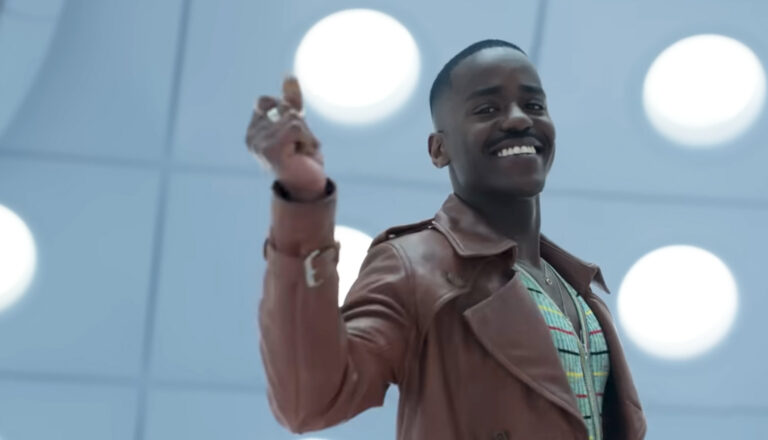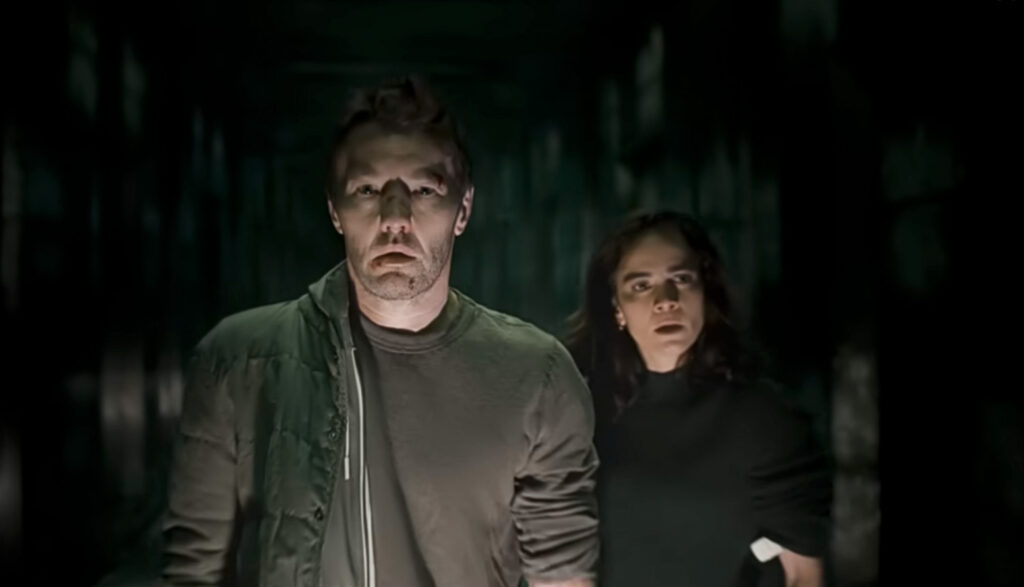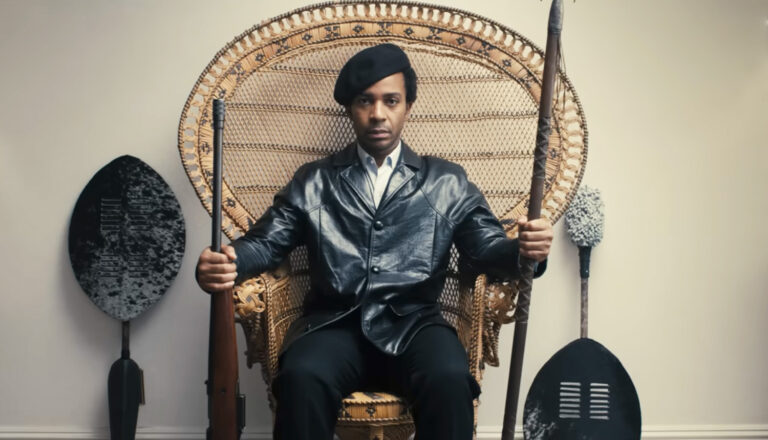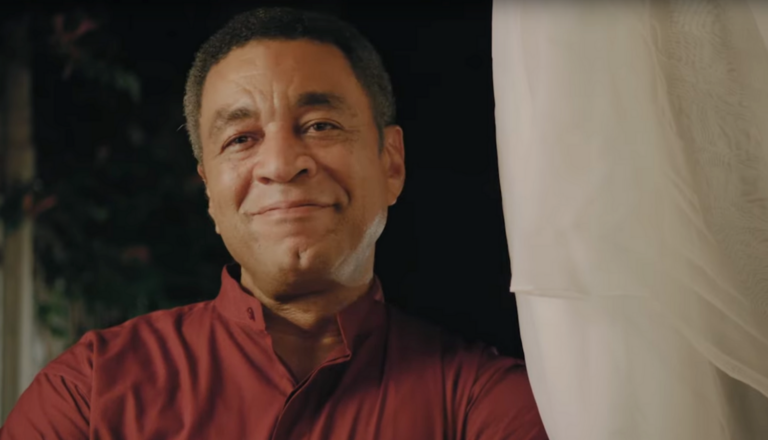
Doctor Who
The good Doctor’s been flitting around time, space and the BBC since 1963. Now he’s also a fixture in the US, toting his curiously British brand of sci-fi in his highly mobile TARDIS. Just how safe is this contraption?

“Are you happy with your life?” the gunman asked. “Or have you ever wondered what else you could’ve been?”
For Jason Dessen—even as the drugs begin to take effect—that’s not really an “or” sort of question.
Yes, Jason’s happy with his life. And sure, he has wondered what else he could’ve been. That’s natural, right? Our lives’ journeys are littered with forks in the road: We choose one and can’t go back. Still, sometimes we wonder where that other fork might’ve led. Where we might’ve gone. To wonder doesn’t make Jason unhappy; it makes him human.
But thanks to this gunman, Jason will have a chance to live out another fork in the road. In fact, the gunman insists on it.
Not that Jason is thinking about metaphorical forks in the road when he first meets his masked attacker. He just wants to stay alive.
The gunman takes his phone and forces him into a car. He makes him drive to a strange, deserted building and injects him with something. He’s forced to change clothes, give the man his wedding ring and …
He wakes up.
A woman rushes into the concrete room Jason’s been kept and seems thrilled that he’s alive—even though Jason has no idea who she is. People congratulate him on making it back, whatever that means. They all seem to think he’s kind of a big deal—a brilliant scientist and physics visionary and yada yada yada, which is frankly ludicrous.
Jason knows he’s not a big deal. Sure, he teaches physics at a local college in Chicago—trying hard to interest his TikTok-watching students in the mysteries of Schrödinger’s Cat. He’s a nobody, really—living peacefully and anonymously with his wife, Daniela, and his 15-year-old son, Charlie.
But when he escapes and rushes home to see them, they’re not there. What does he find? A bunch of unfamiliar furniture and—well, that strange woman who greeted him so warmly just a little bit ago.
As Jason explores his old Chicago haunts, he discovers that old friends don’t know who he is. Those who do think he’s someone much richer and smarter. And Jason—man of science that he is—must knuckle down and figure out what’s going on. None of the options is particularly comforting. He could be …
A) Off his rocker.
B) The victim of the most elaborate and mean-spirited practical joke ever. Or …
C) Living someone else’s life—someone who he could’ve been, had he made a different choice along the way.
Jason, like every member of the Avengers, has somehow found himself in an alternate reality. But if he’s on a different fork along his own existential road, what’s become of his original fork? And how can he get back to it?
USA Today called Blake Crouch’s original 2016 novel Dark Matter “a nightmarish quantum-mechanics version of It’s a Wonderful Life.” And this Apple TV+ take on the book—also created and written by Crouch—naturally follows suit. Jason has a chance to see what could’ve been had he changed one critical choice.
Jason’s opportunity gives viewers a nice little gift, too: a heartwarming message about the importance of relationship and family. Sure, Jason’s new life comes with money and fame. He’s respected and, sometimes, even treated with awe. But that’s no real replacement for his wife and kid.
But as you might’ve guessed, not everything is so glowing in Dark Matter.
The thriller comes with its share of violence, naturally—though, to this point, not much blood. And we must navigate plenty of sensual encounters, too—encounters that come with some unexpected moral conundrums. (For instance—and a minor spoiler warning here—if Jason runs into an alternate reality Daniela, and the two smooch passionately, would that mean he’s doing wrong by his reality’s version of Daniela?)
And, of course, the show’s metaverse construct comes with potentially another set of issues for Christians to navigate, too. The idea of infinite realities has long been a convenient way for secular physicists to wave away God and still explain the near-impossibility that we exist at all.
But even with all those issues, Dark Matter—if it was movie—would still only warrant a PG-13 rating. What pushes it farther is its profanity. Harsh language, including the f-word, is heard with alarming frequency. And if there’s an alternate reality where such words do not exist, Dark Matter can’t seem to conceive of it.
Yes, our choices define us. We are who we are because of what we chose to do, who we choose to be, and whom we choose to follow. To watch or watch Dark Matter is a choice, too. And while your decision on the matter might not change your life too drastically, it’s still not one to be made lightly.
Jason’s happy that his friend, Ryan, won the Pavia award. He really is. Ryan has become a respected neuroscientist, and he deserves it as much as anyone. Still, Jason knows that he’s just as smart as Ryan is: Perhaps in another life, that award could’ve been his. But even though Jason doesn’t want to go out and celebrate—it’s family night, after all—Daniela tells him to go and be a good friend.
But Jason never makes it home. A masked gunman forces him to drive to a deserted building where he injects him with some unknown drug. Then, Jason must change clothes and take off his wedding ring before he falls asleep. When he comes to, he finds himself in a version of Chicago that’s very, very different from the one he left.
Meanwhile, another Jason happily goes home to his wife and son.
We see both Jasons with wife, Daniela. In one scene, the married (?) couple goes to their bedroom and begins removing each other’s clothes, obviously prepping for sex. The two fall on the bed and engage in foreplay. In another reality, a shirtless Jason gets out of bed, and Daniela—a bare shoulder exposed—touches his hand. Elsewhere the two kiss and cuddle. In still another alternate reality, Jason heads home and sees Amanda Lucas, a woman with whom Jason apparently lives. (In another scene, Amanda hugs Jason tightly and intimately, much to Jason’s discomfort.)
The gunman forces Jason to strip down to his boxers. Later, Jason takes a forced shower and covers his privates with his hands.
Jason and the gunman fight: Jason suffers some cuts on his face (which serve to identify him throughout the rest of the episode) and falls down a staircase. The gunman suffers some sort of wound on his arm. Jason’s nearly hit by an oncoming car. Charlie, who’s learning to drive, nearly hits another car on his way to school. Jason talks about a potentially dead cat in class.
Ryan asks the bartender to hand Jason a bottle of expensive Scotch, and the two appear to drink several glasses. Jason and Daniela pour and drink wine; Jason jokes that Daniela’s continual willingness to “open more wine” is an important element in their successful relationship. Later, Daniela asks Jason how drunk he is.
We hear nearly 20 f-words, about seven s-words and a couple of other profanities (“a–” nd “d-ck”). God’s name is misused twice.
Jason Dessen continues to search frantically for his wife, Daniela. Not only does he finally track her down (though she’s using her maiden name), but she’s a famous artist now. And her latest exhibit revolves around … Jason Dessen, whom we learn hasn’t been seen in public for more than a year.
Meanwhile, another Jason (we’ll call him Jason2, as the book does) continues to join domestic pleasures with this version of Daniela. But Daniela is beginning to suspect that all is not right with her husband.
As Jason searches for Daniela online, he discovers some artwork of hers—one piece of which appears to depict a nude woman. Her exhibit, which is a gigantic rumination on the choices we make, includes a display featuring news clips of destruction, chaos and people wearing hazmat suits. Someone is shot in the forehead, and we see a trickle of blood from the wound.
Danielas and Jasons kiss and talk about sex. Jason2 advises Charlie to be “aloof” when talking with a girl that he likes. (Daniela advises a more direct, honest approach.)
Champagne is served at Daniela’s exhibit shindig. Later, she, Jason and this reality’s version of Ryan head back to her place and smoke marijuana. Characters drink wine. Someone jokingly asks if a character is using LSD.
The original Jason goes to a doctor, worried that perhaps he’s suffered brain damage. The doctor says that nothing’s wrong with his brain—but she did detect a strange chemical during a toxicology screening. Ryan asks if Jason2 was able to make use of some “compounds” that Ryan made for Jason’s company.
We hear the f-word about a dozen times and the s-word four. “D-ck” and “p-ss” are also used once or twice. God’s name is misused twice.
[Spoiler Warning] We learn the choice that “created” Jason and Jason2, and it was precipitated when Daniela got pregnant. Our original Jason decided to marry Daniela and raise a family—with both of them ultimately sacrificing individual career goals for that shared one. Jason2 broke up with Daniela to devote his energy to his scientific research. “I chose not to [raise a child] on my own,” Daniela says, indicating she aborted the child that would, in another reality, be Charlie. Now Jason2 regrets that choice—and he’s taken over Jason’s reality to experience the domestic path he rejected 16 years before.


Paul Asay has been part of the Plugged In staff since 2007, watching and reviewing roughly 15 quintillion movies and television shows. He’s written for a number of other publications, too, including Time, The Washington Post and Christianity Today. The author of several books, Paul loves to find spirituality in unexpected places, including popular entertainment, and he loves all things superhero. His vices include James Bond films, Mountain Dew and terrible B-grade movies. He’s married, has two children and a neurotic dog, runs marathons on occasion and hopes to someday own his own tuxedo. Feel free to follow him on Twitter @AsayPaul.

The good Doctor’s been flitting around time, space and the BBC since 1963. Now he’s also a fixture in the US, toting his curiously British brand of sci-fi in his highly mobile TARDIS. Just how safe is this contraption?

The Big Cigar’s protagonist, Huey P. Newton, founder of the Black Panthers, is suspicious of Hollywood. In that, Plugged In would agree.

Milo offers great messages about friendship and trying new things, and it’s free of most anything parents would find concerning.

People from all walks of life learn lessons from God Himself that will change their lives.